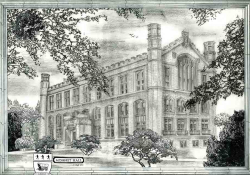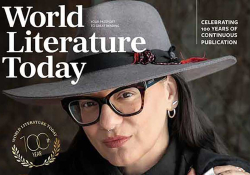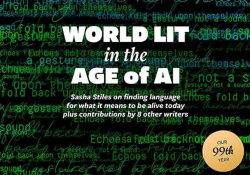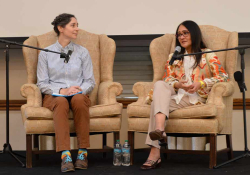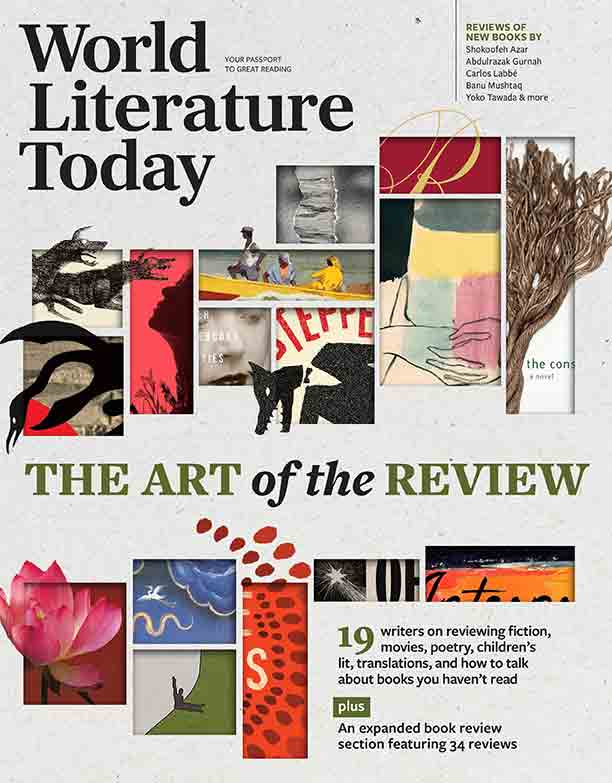Editor’s Note

The editors were astonished to learn recently that nearly 75,000 book reviews have appeared in the pages of Books Abroad and WLT since 1927—an impressive track record. In the current issue, we pay tribute to those reviewers who, setting aside their creative or critical day jobs, provide recommendations to culture enthusiasts looking for the next novel, book of poems, essay collection, audiobook, or movie in which to invest their time and money. Such service work is often overlooked, but even in an algorithmic age, the role of critique remains vitally important, often rising to the level of an art form.
Over the past ninety-nine years, the magazine you hold in your hands—whether actual or virtual—has provided some of the very first takes on books that have gone on to be regarded as modern classics. Other assessments, however, haven’t aged well. One striking example can be found in the epistolary symposium devoted to “The World’s Worst Book” that Roy Temple House, Books Abroad’s founding editor, convened in 1940. His letter of invitation to dozens of writers, under the rubric “Stuffed Shirts and Laurel Wreaths,” read in part: “Wouldn’t it be a service to humanity to peel the borrowed skins off a few of these literary lions and reveal them as the very different breed of animal which they really are?” The number of respondents who rose to the bait is a marvel.
One such salvo, signed by Clement Wood and his second wife, the writer Gloria Goddard, is worth quoting nearly in full:
(1) Milton’s Paradise Lost and Paradise Regained. Ersatz epics, in ponderous impossible style, which corrupted verse for 300 years. Plot silly and unbelievable; science torpedoed it finally. (2) Longfellow’s Hiawatha. Genuine Indian myth blitzkrieged by an alleged Finnish meter and an anachronistic faked Christian moral. The world’s all-time record for monotonous dulness. (3) Melville’s Moby-Dick and similar works. Recipe: for every needed word, pad with six to sixteen more. A fine skeletal story, left permanently tangled in the tar-baby of his style. (4) James Joyce’s Ulysses. A waspy little grouch, soured at not being called “the world’s greatest novelist” (and he did show promise) turned out a ponderous fakedly-insane combination of dictionary, cross-word puzzles, catechism, and backhouse jokes. The fourth item, as developed in Miriam [sic] Bloom’s soliloquy, would be important, if he hadn’t been too hard up for paper to punctuate it. As for Finnegan’s Wake—barred; it omitted the dictionary, and has no reputation. (5) William Ellery Leonard’s Two Lives. Almost the worst sonnet sequence in English, due to its cemetery style. A horrible example of everything in versification to avoid. (6) Stephen Vincent Benét’s John Brown’s Body. Prosy piffle, by a fine poet, whose ballads are often splendid. Ersatz emotion, hardly permitting poetry ever to appear. (7) Edgar Lee Masters’ Domesday Book. Device from Browning; and the style wins the Tin Jalopy In-Reverse 4th of July race on any track.
Wood obviously relished the idea of peeling the skin off a few literary lions. Prior to becoming a writer, he had worked as a lawyer and magistrate in Birmingham, Alabama, but was removed for “lack of judicial temperament” after “falling afoul of the local political establishment.” Among his literary credentials, Wood published a Poets of America survey in 1925 and, in 1929, the ambitious Outline of Man’s Knowledge: The Story of History, Science, Literature, Art, Religion, Philosophy, one of several titles that joined the 1920s publishing vogue of producing all-encompassing “outlines” of the world’s knowledge systems. Wood was also a poet who dubiously tried to write in Black dialect, a frequent contributor to pulp magazines, a socialist, and an atheist whose 1939 Tom Sawyer sequel, Tom Sawyer Grows Up, is deservedly forgotten. Milton, Melville, and Joyce have had the last laugh.
Should devotees of literature and the arts care what critics think? Five or ten years from now, artificial intelligence will have likely usurped the traditional role of critics, but in 2025, the editors of WLT remain steadfast believers in the human craft of literary judgment, even when posterity judges otherwise. We don’t expect you to agree with everything to be found in the following pages, but we hope you are engaged, enlightened, and perhaps even fearless enough to be drawn into the lions’ den.
Daniel Simon
